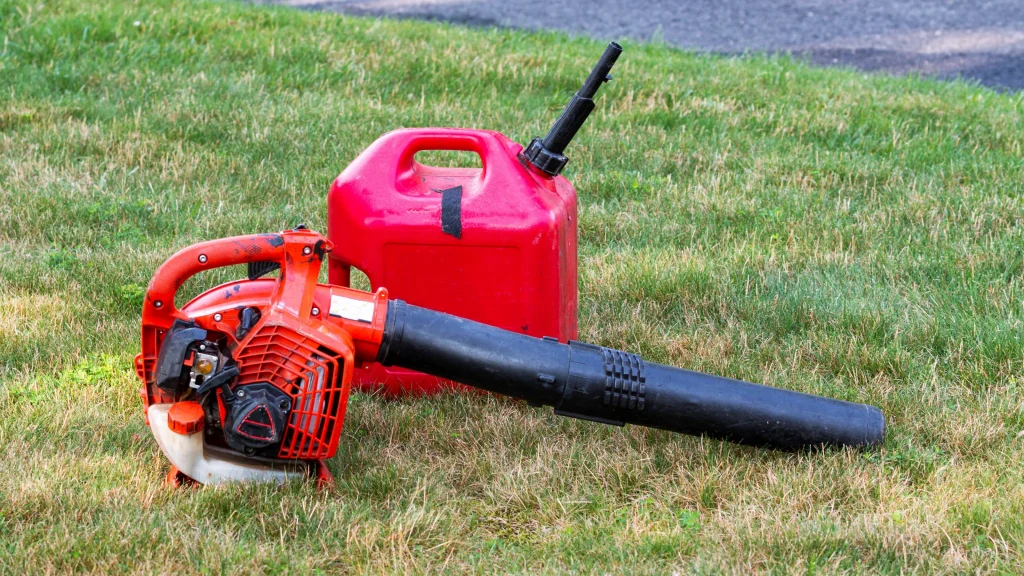
In October 2022, San Francisco passed the Healthier, Cleaner, Quieter Communities Act. This Ordinance prohibits the use of gas-powered landscaping equipment by City departments and their contractors. The Ordinance also applies to property owners, business owners and managers, and the general public as of January 1, 2026.
Below are answers to some common questions about the new ordinance.
Why is there a ban on gas-powered landscaping equipment?
Gas-powered landscaping equipment emits substantial levels of toxic pollution that harm both the environment and human health. This Ordinance prohibits the use of gas-powered landscaping equipment by City departments and their contractors. The Ordinance also applies to property owners, business owners and managers, and the general public starting January 1, 2026.
Human health
Emissions from gas-powered landscaping equipment, including small particulates, carbon monoxide, and volatile organic compounds, pose health risks for the public at large and equipment operators. Prolonged exposure to these emissions increases the risk of cancer and adversely affects respiratory and cardiovascular health.
This equipment also generates noise and, in some instances, can exceed the World Health Organization’s recommended maximum outdoor noise level by over 20 decibels. These high noise levels have been linked to serious health issues, such as hearing loss and cardiovascular problems.
Environmental health
San Francisco’s 2021 Climate Action Plan set a goal of net-zero emissions by 2040, recognizing the urgent need to mitigate climate change. This Ordinance supports that goal. For example, the pollution emitted from a gas-powered leaf blower for one hour is equivalent to the pollution generated from driving an internal combustion engine vehicle 1,100 miles – roughly the distance between San Francisco and Santa Fe.
Additionally, the pollutants emitted from gas-powered landscaping equipment damages the health of agricultural plants by reducing both the quantity and quality of the foods they produce. These pollutants can also degrade soil fertility, damaging their ability to grow plants.
Who does this Ordinance apply to?
- Professional landscapers: Transition to electric or battery-powered equipment by January 1, 2026.
- Property owners, managers, and renters: Whether you hire professional landscapers or conduct your own landscaping needs, ensure gas-powered equipment is not used for these activities by January 1, 2026.
- City departments and contractors: Prohibited from using gas-powered equipment as of July 1, 2024.
Compliance with the Ordinance
Banned equipment
This Ordinance bans the use of gas-powered landscaping equipment, specifically, small off-road engines (SOREs), which are defined as spark-ignition engines that produce less than 25 horsepower. This includes lawn and garden equipment such as leaf blowers, trimmers, and mowers.
Replacement equipment
Zero-emission equipment is readily available at lawn and garden supply stores across California. Additionally, the California Air Resources Board (CARB) mandates that all new lawn and garden equipment under the SORE designation must be zero-emission for model year 2026 and later.
Disposal of gas-powered equipment
Recology offers free curbside collection of bulky items, including lawn and garden equipment. Please note that any remaining gasoline or oil in the tank must be disposed of separately as household hazardous waste. Call Recology at (415) 330-1300 to schedule a Bulky Item Pickup and/or a Household Hazardous Waste pick-up, or drop the items off at Recology’s Household Hazardous Waste Facility.
Additional information on collection of bulky items is available on Recology’s website.
Businesses are eligible to use the City’s low-cost hazardous waste disposal program called the Very Small Quantity Generator Program. To schedule an appointment, contact Recology at (415) 330-1425. You can also visit their website for more information on hazardous waste disposal.
Additional resources
Learn more about zero-emission landscaping equipment and related programs through the resources below. These links offer detailed information from the California Air Resources Board and the California Clean Off-Road Equipment Voucher Incentive Project.
California Air Resources Board